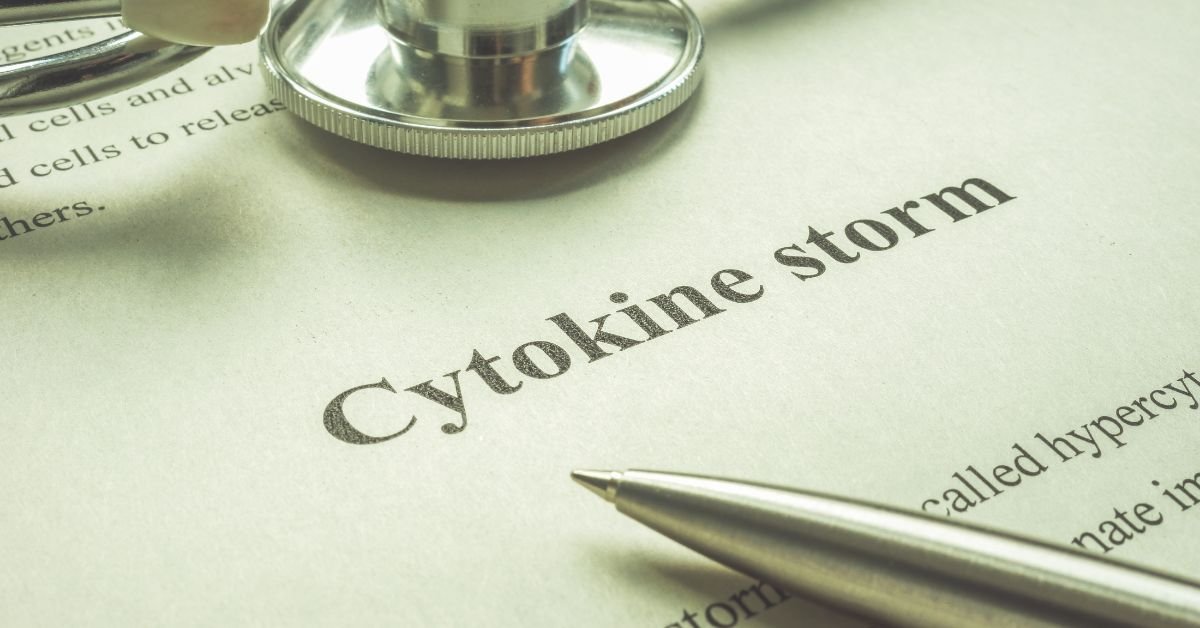
In my years in oncology, I have been able to observe how the human immune system functions in both protective and, at times, destructive ways. One of the most striking examples of this paradox is cytokine storm, a condition in which the body’s defense mechanism turns against itself, leading to severe inflammation and potential organ failure.
What is Cytokine Storm Syndrome?
Cytokines are small proteins released by immune cells to regulate inflammation and fight infection. Under normal circumstances, they help the body heal. However, when the immune system overreacts, excessive cytokine release occurs, causing widespread inflammation. This phenomenon, known as cytokine release syndrome, can lead to severe tissue damage, multi-organ failure, and even death.
Cytokine storm causes:
Cytokine storms are commonly associated with:
Infections (e.g., severe viral infections such as COVID-19, influenza, and dengue)
Cancer and immunotherapy (e.g., CAR-T cell therapy for leukemia and lymphoma)
Autoimmune diseases (e.g., lupus, rheumatoid arthritis)
Sepsis and other inflammatory conditions
Symptoms and Complications:
Patients who have a cytokine storm may have:
High fever and chills
Severe fatigue and muscle pain
Rapid heartbeat and blood pressure
Difficulty breathing (ARDS – Acute Respiratory Distress Syndrome)
Multi-organ dysfunction
If left unchecked, a cytokine storm can cause widespread inflammation, leading to lung damage, cardiovascular collapse, and neurological complications.
Cytokine storms in cancer treatment
In oncology, CAR-T cell therapy, a breakthrough treatment for blood cancers, can trigger cytokine storms when engineered immune cells aggressively attack the cancer. Although this is a sign of an active immune response, it must be managed carefully to avoid life-threatening complications.
Cytokine storm treatment:
Early detection and intervention are essential. Treatments may include:
Immunosuppressive therapies (e.g., corticosteroids, IL-6 inhibitors such as tocilizumab)
Supportive care (e.g., oxygen therapy, fluids, vasopressors to stabilize blood pressure)
Plasma exchange in severe cases
Anti-inflammatory medications to control excessive immune activation
Final Thoughts
Cytokine storms are a stark reminder that balance is essential in the immune system. While their role in fighting infection and cancer is essential, an uncontrolled immune response can be just as dangerous. As researchers continue to improve treatments for cytokine storms, especially in cancer treatment, our goal remains clear: harness the power of the immune system by preventing it from turning against the body.
For people undergoing cancer treatment or who are at risk of developing severe infections, awareness and early intervention are essential. If you or a loved one are experiencing severe symptoms of inflammation, seek medical attention immediately.
Why More Young Adults Are Developing Colorectal, Pancreatic & Other GI Cancers …
By Dr. Saadvik Raghuram Y – Leading Oncologist in Hyderabad World Cancer …
Why Are So Many Young People Getting Cancer Today? Across the world, …
January is Cervical Cancer Awareness Month in India, and this article explains …
Cancer-Related Fatigue (CRF) is one of the most common—and most underestimated—symptoms experienced …
Every year, Aplastic Anemia Awareness Month shines a spotlight on a rare …

